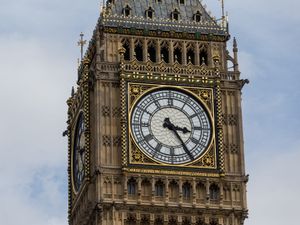CPS did not change rape prosecution policy, the Court of Appeal rules
Campaigners have criticised the Court of Appeal’s decision as ‘another establishment betrayal of victims of violence against women and girls’.

The Crown Prosecution Service (CPS) did not change its policy on prosecuting alleged rapes, the Court of Appeal has ruled in a decision criticised by campaigners as “another establishment betrayal of victims of violence against women and girls”.
The End Violence Against Women Coalition (Evaw) argued that, between 2016 and 2018, the CPS moved away from a “merits-based approach” to deciding which cases of alleged rape and other serious sexual assault should be prosecuted.
The group claimed prosecutors became more risk-averse and shifted towards an “unlawful predictive approach when deciding whether to charge” alleged sexual offences, which it said gave rise to “systemic illegality”.
Its lawyers said the removal of references to the “merits-based approach” in guidance for prosecutors led to a “shocking and unprecedented decline in both the rate and volume of rape offences charged by the CPS”.
The CPS, however, said there was no change in policy and argued that the removal of dedicated “merits-based approach” guidance “did not result in any substantial change” in charging decisions.
In a judgment on Monday, the Court of Appeal dismissed Evaw’s case, ruling that the CPS did not change its policy in relation to the prosecution of sexual offences.
The Lord Chief Justice Lord Burnett said in the ruling that the removal of references to the “merits-based approach” in guidance for prosecutors “was not a change of legal substance”.
The judge, sitting with Lord Justice Holroyde and Lady Justice Elisabeth Laing, said: “We do not consider that it was unlawful to decide to remove references to the merits-based approach from the Director of Public Prosecution’s legal guidance.
“Stripped of references to the merits-based approach, the remaining guidance is not unlawful.”
Lord Burnett added: “We reject the submission that the decision created any risk of systemic illegality.”
The Director of Public Prosecutions Max Hill QC welcomed the ruling, which he said confirmed that “the CPS was neither irrational nor unlawful in its approach to updating guidance for prosecutors, and that there was no change of approach in the way the CPS prosecutes rape cases”.
Mr Hill said “the legal test that guides every charging decision has not changed”, adding: “The principles of the merits-based approach are enshrined in the Code for Crown Prosecutors, which guides every charging decision.
“Independent inspectors have found no evidence of a risk-averse approach and have reported a clear improvement in the quality of our legal decision-making in rape cases.
“Today’s outcome means we can now give our full focus to the extensive programme of work under way to address the gap between reported rapes and cases going to court.”
Evaw’s director Andrea Simon said: “We are deeply disappointed at this outcome. However, we have no regrets about holding institutions accountable for the effective decriminalisation of rape.
“Thousands of rape victims continue to be let down by a broken criminal justice system.
“The Court of Appeal has given the CPS the benefit of the doubt on whether there was any change of approach to prosecution decision-making, but we still lack alternative answers to why rape prosecutions have collapsed.
“This marks another establishment betrayal of victims of violence against women and girls.”
Harriet Wistrich, director of the Centre for Women’s Justice, which acted for Evaw, said she was “deeply disappointed” with the ruling.
She said the evidence Evaw presented as part of the challenge showed that the change in “messaging” to prosecutors led to “an over-cautious approach”.
Ms Wistrich added: “As a consequence, rapists that might otherwise have been convicted are walking free and there is a growing perception that rape has been decriminalised.”
At a hearing in January, Evaw referred to statistics showing “a shocking and unprecedented collapse in the volume and percentage of rape allegations resulting in a prosecution between 2016 and 2020”.
The group said that an average of 3,446 rape allegations were charged per year between 2009/10 and 2016/17, but the annual volume of prosecutions fell by almost a quarter in 2017/18.
By 2018/19, it had dropped by over a half, with only 1,758 prosecutions being pursued by the CPS out of a total of 55,000 allegations reported to the police that year, Evaw said.
Evaw wanted to rely on expert statistical evidence on whether the fall in charges was “consistent with” a change in CPS practice, but the Court of Appeal refused to admit it as it did not show that any decision “led to a risk of systemic illegality”.
Ms Wistrich said she was “disappointed that the judges refused to admit the expert statistical evidence we produced, which showed that the most plausible explanation for the undoubted collapse in rape prosecutions arose from the CPS decision to change their approach”.
Kate Ellis, a solicitor at the Centre for Women’s Justice, said: “The evidence plainly speaks for itself, notwithstanding the court’s judgment today.”
She added: “That evidence is now in the public domain and, while the court may not have agreed that it shows illegality, it undoubtedly reveals cause for public concern.
“This case has highlighted, if nothing else, an enormous accountability gap that needs to be addressed.”
Shadow solicitor general Ellie Reeves also condemned the ruling, describing it as “a disappointing result which endorses what is effectively decriminalisation of rape”.





